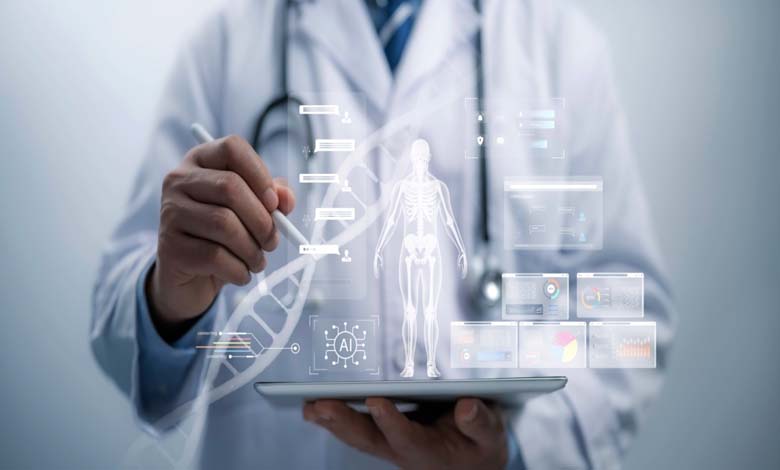Does Artificial Intelligence Provide Accurate Health Advice?

The increasing use of generative artificial intelligence for health inquiries is reshaping how individuals seek medical information, raising concerns about the accuracy of results.
According to a report published by Hindustan News, ChatGPT is one of the most widely used tools, providing specialized answers to users, making it an attractive source for those looking for quick and easily accessible health advice.
-
Can Artificial Intelligence Find a Way to Understand Animal Sounds?
-
Artificial Intelligence: A New Battleground between the US and China
However, concerns persist regarding the accuracy of health information provided by AI, particularly when relying on these tools without consulting healthcare professionals.
Recently, an unprecedented Australian study was conducted to examine who uses ChatGPT for health inquiries and what types of questions are being asked. The findings emphasized the need to improve “AI health literacy” to ensure that users can safely and effectively handle AI-generated medical information.
In June 2024, a survey was conducted with a representative sample of over 2,000 Australians, revealing that 9.9% had used ChatGPT to search for health information during the first half of the year.
-
Will Artificial Intelligence Play a Role in Cancer Detection?
-
Can Artificial Intelligence Be a Safe Partner in the Workplace?
The study found that individuals with low health literacy, those born in non-English-speaking countries, or those who speak a different language at home were more likely to use ChatGPT for medical information.
This suggests that AI tools may bridge a gap for those struggling to access traditional health information in a country where their native language is not widely spoken.
The most common questions asked on ChatGPT included inquiries about a medical condition (48%), symptom interpretation (37%), advice on appropriate actions (36%), and clarification of medical terms (35%).
-
“Artificial Intelligence Police” Working Hand in Hand with Chinese Security to Combat Crime
-
Benefits and Risks: How Artificial Intelligence Affects Children
The adoption of generative AI for obtaining health information is expected to increase, as 39% of participants who had not yet used ChatGPT expressed interest in trying it within the next six months.
The use of AI in the medical field is not limited to ChatGPT but also includes platforms such as Google Gemini, Microsoft Copilot, and Meta AI.
The study revealed that individuals from diverse cultural and linguistic backgrounds are the most inclined to use ChatGPT for health information. However, AI-generated translations of medical content may pose additional challenges, as their accuracy can vary between languages.
-
Artificial Intelligence: A “Factory” for Producing “Fake” Scientific Studies
-
Do patients trust artificial intelligence more than doctors?
This highlights the need for investments in AI-driven and human-supported solutions to ensure reliable access to health information.
As generative AI continues to evolve, it presents both opportunities and challenges in the healthcare sector. These tools can enhance access to medical information, especially for those facing barriers to traditional healthcare services.
Research suggests that AI is capable of delivering general health information in simplified language, making it more understandable for the general public.
-
Artificial Intelligence Will Reshape the Job Market by 2030
-
How will artificial intelligence change the shape of wars in the future?
However, relying on AI for complex medical inquiries carries risks. Medical diagnosis requires a deep understanding of an individual’s health condition, something that current AI models lack.
Some cases have demonstrated the dangers of over-reliance on AI for critical medical decisions, such as determining whether hospitalization is necessary.
-
“United Airlines” Utilizes Artificial Intelligence for Passenger Comfort
-
Europe is concerned about the future of its children due to artificial intelligence
While health authorities worldwide are working on regulatory policies for AI use, most efforts focus on how healthcare providers interact with these technologies rather than how the general public uses them.
Thus, the report highlights the urgent need to enhance AI health literacy skills so that individuals can critically assess AI-generated medical information.












